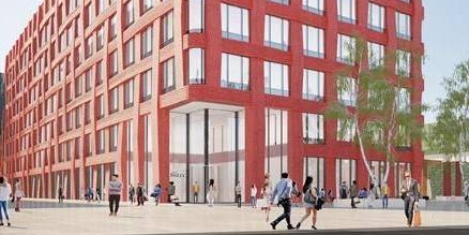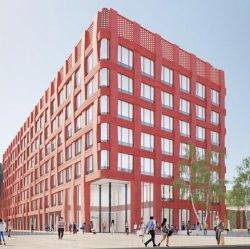April 17, 2018
Robots will lead to increased productivity without stealing jobs, but wages will fall
 Robots will not as feared steal people’s jobs and will eventually improve productivity, but they will undercut workers’ contribution sufficiently to depress their wages. According to the third report in Barclays Impact Series, titled Robots at the gate: Humans and technology at work, technology is fundamentally re-shaping the nature of work, and the implications of this re-shaping process will accelerate in coming decades. The report authored by Barclays’ Research team and supported by the Barclays Social Innovation Facility sets today’s technological advancements in the context of historical precedent and argues that robotics and Artificial Intelligence do not portend a jobless future. However, these new technologies have important macroeconomic consequences, such as wage disinflation, which will likely continue in the years or even decades to come. The report also argues that productivity spurts lag behind technological leaps, as it can take years or even decades for an economy to figure out how to best use a new technology. Eventually, economies of scale are reached, consumer behaviour adapts, companies refine their business models and productivity growth finally kicks in. (more…)
Robots will not as feared steal people’s jobs and will eventually improve productivity, but they will undercut workers’ contribution sufficiently to depress their wages. According to the third report in Barclays Impact Series, titled Robots at the gate: Humans and technology at work, technology is fundamentally re-shaping the nature of work, and the implications of this re-shaping process will accelerate in coming decades. The report authored by Barclays’ Research team and supported by the Barclays Social Innovation Facility sets today’s technological advancements in the context of historical precedent and argues that robotics and Artificial Intelligence do not portend a jobless future. However, these new technologies have important macroeconomic consequences, such as wage disinflation, which will likely continue in the years or even decades to come. The report also argues that productivity spurts lag behind technological leaps, as it can take years or even decades for an economy to figure out how to best use a new technology. Eventually, economies of scale are reached, consumer behaviour adapts, companies refine their business models and productivity growth finally kicks in. (more…)



























 Two new reports published today reflect increasing concerns about stress and mental ill health at work and a lack of understanding by many organisations in how to combat the problem. A new study by Bupa claims that mental health is now a priority at board level for almost two-thirds (65 percent) of businesses, rising to 72 percent among large corporates, while mental health is now a bigger issue than physical illness among employees for nearly a third (29 percent) of businesses. Yet while an overwhelming majority (96 percent) of businesses want to help support their people, many (57 percent) do not know how to best support employees with these challenges. Two in five (39 percent) admit that awareness and understanding of mental health issues is still low across their organisation. These findings are echoed in a report carried out by Perkbox that claims work is by far the most common cause of stress (59 percent). Yet almost one in two (45 percent) of British businesses do not offer anything to help alleviate this, despite the fact that 1 in 4 (25 percent) struggle to be as productive at work when stressed.
Two new reports published today reflect increasing concerns about stress and mental ill health at work and a lack of understanding by many organisations in how to combat the problem. A new study by Bupa claims that mental health is now a priority at board level for almost two-thirds (65 percent) of businesses, rising to 72 percent among large corporates, while mental health is now a bigger issue than physical illness among employees for nearly a third (29 percent) of businesses. Yet while an overwhelming majority (96 percent) of businesses want to help support their people, many (57 percent) do not know how to best support employees with these challenges. Two in five (39 percent) admit that awareness and understanding of mental health issues is still low across their organisation. These findings are echoed in a report carried out by Perkbox that claims work is by far the most common cause of stress (59 percent). Yet almost one in two (45 percent) of British businesses do not offer anything to help alleviate this, despite the fact that 1 in 4 (25 percent) struggle to be as productive at work when stressed.







